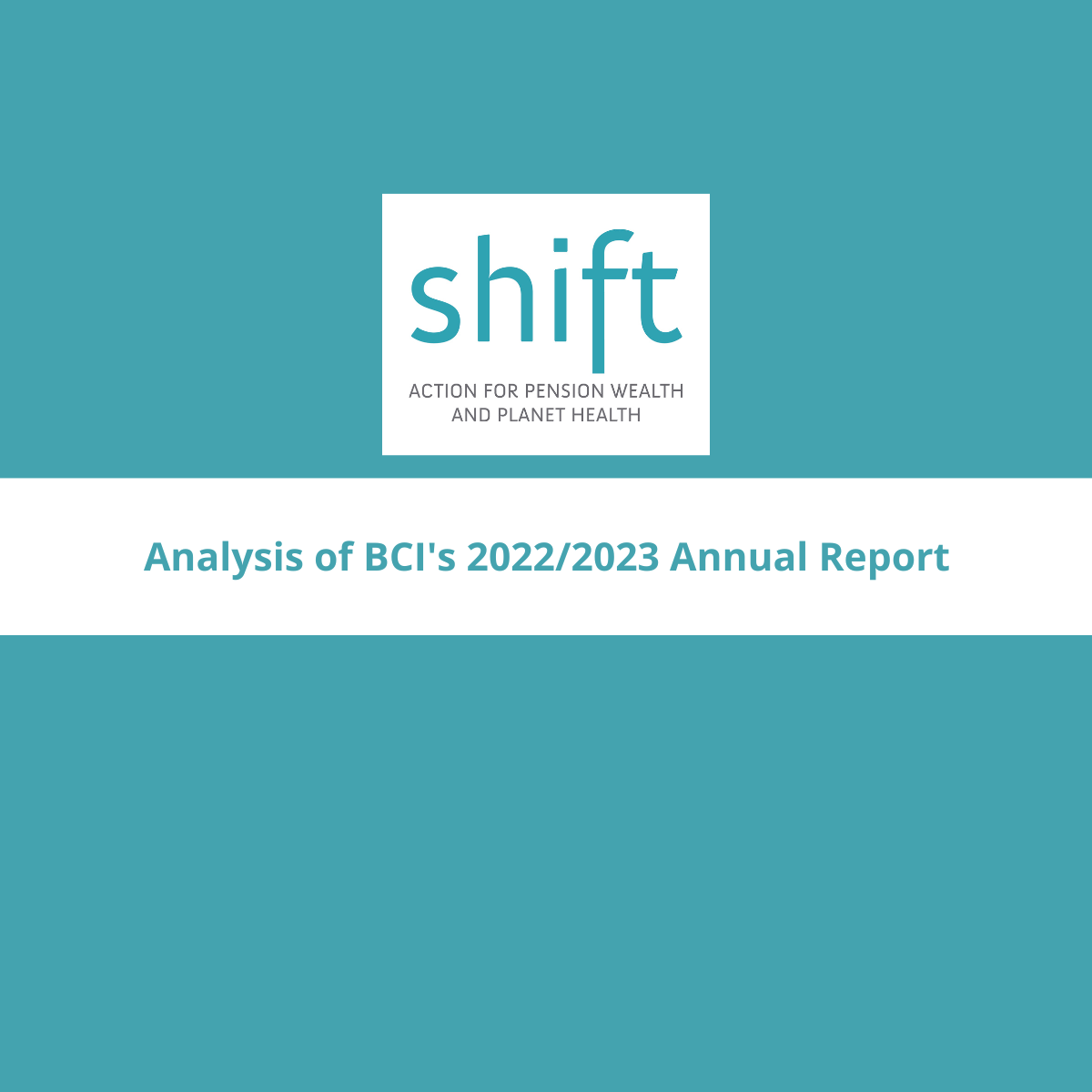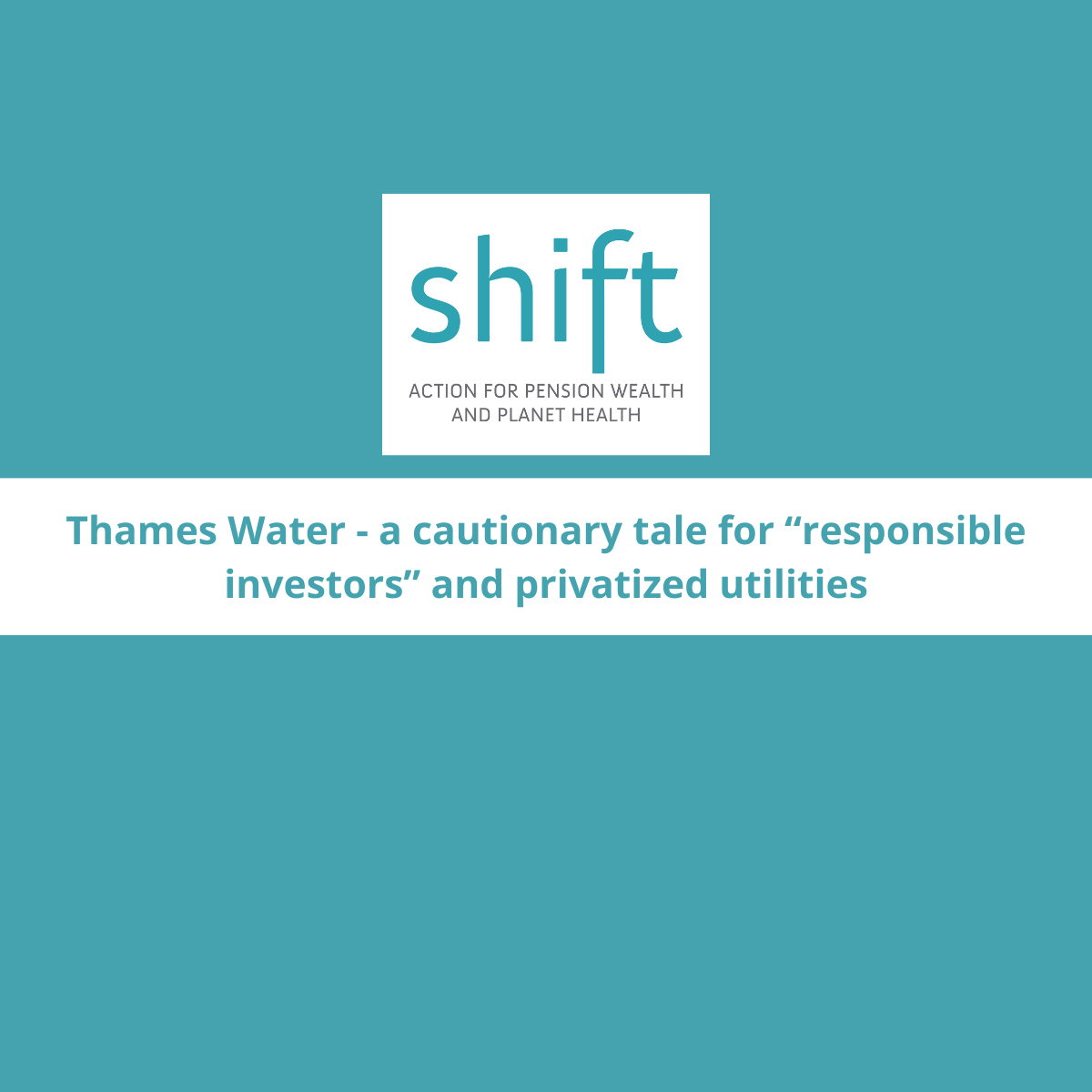Statement on the University Pension Plan’s Climate Transition Investment Framework
With its Climate Transition Investment Framework, UPP continues to ignore the scientific imperative to phase out fossil fuels. Ongoing failure to name the primary cause of the climate crisis and clearly signal to markets the need for a phase-out of fossil fuels will undermine the important climate leadership UPP is otherwise demonstrating in Canada’s financial sector.
Statement on the release of Climate Engagement Canada’s Net-Zero Benchmark Company Assessments
Climate Engagement Canada’s (CEC) first Net-Zero Benchmark company assessments reveal how off-course Canada’s top carbon emitters are in aligning with climate safety and respect for Indigenous rights. With this valuable data in hand, CEC investors must double down to engage companies forcefully and with escalation. At the same time, investors should not waste their time trying to engage the oil and gas sector, which has no profitable or credible pathway to net-zero other than phasing out production.
Canada Pension Plan opens COP28 by celebrating oil and gas investments
As the scientific imperative to phase out fossil fuels dominates discussions at the global climate conference, CPPIB highlights its growing oil and gas investments
Analysis of OPTrust's Climate Strategy Update and 2022-2023 TCFD
While some encouraging elements are included, OPTrust’s Climate Strategy update and 2022-2023 TCFD report demonstrate a process-heavy approach that has resulted in few hard climate targets and no progress toward excluding new investments in fossil fuels, thus demonstrating that the fund is still struggling to align its $25-billion portfolio with the goals of the Paris Agreement.
Analysis of UPP's Climate Stewardship Plan
The University Pension Plan’s new Climate Stewardship Framework represents one of the strongest approaches to climate-related engagement and stewardship in the Canadian pension sector, reaffirming UPP’s position as a climate leader. But UPP shies away from taking the necessary and Paris-aligned step of excluding fossil fuels from its portfolio, something that its members, including sustainable finance experts and climate scientists, have demanded since the plan’s inception.
Opinion: Canada's pension plan shouldn’t be a cheerleader for Alberta’s oil and gas industry
Read the op-ed from Patrick DeRochie, Shift’s Senior Manager, in Corporate Knights.
“By pledging to grow its portfolio of oil and gas assets, CPPIB is making an alarming bet on the world failing to limit global heating to safe levels, putting the CPP at risk from an accelerating energy transition and our retirement security at risk from catastrophic climate change.”
Statement from Shift on the 2023 Fall Economic Statement’s updates on sustainable finance, climate change and pensions
Yesterday's Fall Economic Statement (FES) from the Government of Canada included several noteworthy updates in the world of sustainable finance, climate change and pensions.
Climate Pension Quarterly - Issue #9
In this Climate Pension Quarterly: a new climate plan from OMERS, the riskiness of carbon markets (attention: Canada Pension Plan Investment Board), and the foreseeable climate-related financial risks for Canadian pension funds who stocked up on European gas pipelines (attention: British Columbia Investment Management Corporation and Ontario Teachers’ Pension Plan).
Ontario health workers get a closer look at HOOPP’s $1.6 billion in oil and gas companies
At a quick glance, HOOPP members might mistakenly assume that HOOPP’s climate plan and net-zero emissions commitment mean that their retirement savings are no longer invested in the coal, oil, gas and pipeline companies whose products are fuelling the climate crisis. But that’s not the case.
OMERS Climate Action Plan builds credibility, but more bold action will be required
After the hottest summer in recorded history, with municipalities across Canada facing wildfire evacuations, air quality warnings, extreme heat and flooding, it is encouraging to see OMERS taking many required steps to protect pensions and the climate in the face of the worsening climate emergency. However, further detail, ambition and action will be required – in particular, action to end the relatively small amount of finance OMERS continues to provide for fossil fuels.
Press release: Members of Canada’s Public Service Pension Plan ask Cabinet to remove Imperial Oil director from their pension’s board of directors
Working and retired public servants from across Canada sent a letter today to Prime Minister Justin Trudeau and his Cabinet asking them to remove Imperial Oil Director Miranda Hubbs from the board of the Public Sector Pension Investment Board (PSPIB) with cause.
Analysis of BCI's 2022/2023 Annual Report
BCI, the $233 billion pension manager for 725,000 public sector employees, including teachers, health care workers, college and university staff, and provincial and municipal public servants, released its 2022-2023 Annual Report last week. BCI’s lack of a net-zero emissions commitment, failure to implement a fossil fuel exclusion, and continued investment in fossil fuels and related infrastructure demonstrate that the fund is not yet aligned with the goals of the Paris Agreement.
Thames Water - a cautionary tale for “responsible investors” and privatized utilities
The reputation of some of Canada’s largest public pension funds as responsible investors with a record of due diligence, strong corporate governance and environmental oversight is being challenged this summer by the collapse of Thames Water, the United Kingdom’s largest water utility that services 15 million people. Partly owned by OMERS and BCI, Thames Water has become a poster child for a British water industry under fire for its poor environmental record and financial mismanagement.
Statement on CPPIB-Owned Civitas Resources' $6.2 Billion Oil Acquisition
A company privately owned by the Canada Pension Plan Investment Board (CPPIB) announced this morning that it’s spending CA$6.2 billion to increase its oil production by 60%. Ongoing, reckless investment in fossil fuel expansion by Civitas Resources (Civitas) makes a mockery of the CPPIB’s net-zero emissions commitment and gambles the retirement savings of millions of Canadians on climate failure.
Climate Pension Quarterly - Issue #8
This quarter saw inspiring actions from pension plan members seeking to hold their pension managers accountable for investing their savings in a safe retirement, which inherently requires a liveable planet. Shift was also pleased to see some Canadian pension managers step up during shareholder season, with two bringing forward climate-related shareholder resolutions. Read on for the full stories in the Climate Pension Quarterly.
Press Release - Pension plan members ask IMCO for clarity on its confusing fossil fuel exclusion policy
Working and retired public servants from across Ontario sent a letter today to their pension manager, the Investment Management Corporation of Ontario (IMCO), seeking clarity on its confusing policy for restricting and phasing out investments in fossil fuels.
Analysis of HOOPP’s 2022 Real Estate Sustainability Report
While the Healthcare of Ontario Pension Plan’s (HOOPP) newly posted 2022 Real Estate Sustainability Report provides expanded disclosure of the fund’s approach to and challenges in real estate decarbonization, it also serves to highlight how little information HOOPP has made available regarding decarbonization of other asset classes.
How did your pension fund vote on key climate-related shareholder proposals? [post updated July 11, 2023]
Canada’s largest public pension funds claim that they need to stay invested in fossil fuels so that they can use their influence to help companies reduce greenhouse gas emissions. But an analysis of shareholder votes at recent investor meetings for big banks and fossil fuel companies shows most pension funds aren’t even doing the bare minimum. Pension funds are largely voting against climate-related shareholder proposals and allowing company directors to ignore growing climate-related financial risks. Some pension funds won’t even disclose to their members how they’re voting.
Climate and Energy Analysis of the CPPIB's 2023 Annual Report
Yesterday the Canada Pension Plan Investment Board (CPPIB) released its annual report for the fiscal year ending March 31, 2023. With $570 billion in assets under management, the CPPIB is making big and growing investments in climate solutions and taking a more sophisticated approach to managing climate-related financial risks. But a close read of its 2023 annual report shows Canada’s national pension manager continues to obscure its exposure to and prolongation of the fossil fuel economy while failing to understand that its mandate will be impossible to fulfill without urgent action to avert catastrophic climate change. The CPPIB has considerable work to do to establish a credible climate strategy. Read about the good, the bad and the ugly of the climate and energy highlights from the CPPIB’s 2023 annual report.
Analysis of BCI's 2022 ESG Annual Report
Last month, BCI released its 2022 ESG Annual Report, which provides further evidence that BCI is responding to calls from pension plan members for increased disclosure of how it is handling climate-related financial risks. In some ways, BCI is demonstrating climate leadership in the Canadian pension sector, but a close read shows that BCI’s strategy has an overreliance on false climate solutions like carbon capture, utilization and storage (CCUS) and carbon offsets, a fatally flawed approach to engaging fossil fuel companies, and a lack of a plan to disclose credible, science-based climate plans for its growing portfolio of fossil fuel assets.


















![How did your pension fund vote on key climate-related shareholder proposals? [post updated July 11, 2023]](https://images.squarespace-cdn.com/content/v1/5b9a9754d274cbec1ca7f8f8/d54f9953-05f0-4b0a-b603-0884592444a4/Pension+Fund+Votes+-+Shareholder+Season+2023.jpg)

